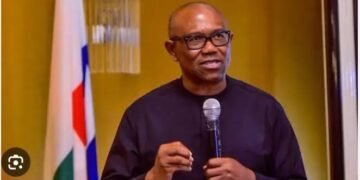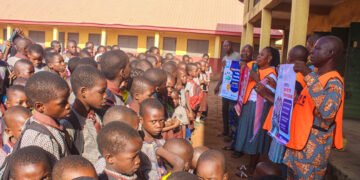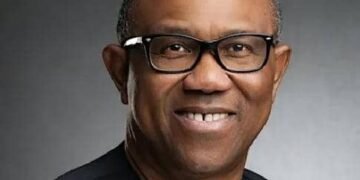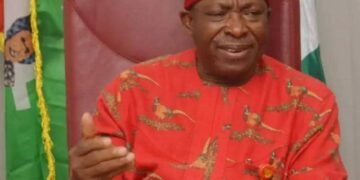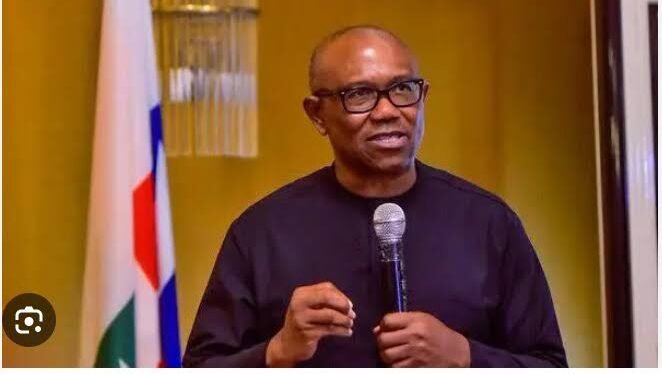By Jude Michael
The Labour Party Presidential candidate in the 2023 Presidential Election, Mr. Peter Obi, has lamented the rapid economic decline of Nigeria, fearing that such will not augur well for the country’s future generation.
Obi spoke on Saturday, July 27, during the installation of Prof Au. Nnonyelu as the 8th District Governor of Rotary International, District 9142, in Awka.
He said Nigeria’s challenges were not due to a lack of resources but rather a severe leadership deficit.
‘Despite Nigeria’s wealth of resources, the country’s global standing has declined, primarily due to poor governance.
‘There is need for transformational leadership to address these issues and steer Nigeria towards a more prosperous future.
‘There’s a worrying decline in Nigeria’s economic trajectory. In 1998, Nigeria’s economy grew at less than 3%, improving to over 5% in 2019. However, the country’s per capita income has plummeted from $3,200 in 2014 to $1,087 today.
‘This economic downturn has resulted in Nigeria having the highest number of homeless people globally, with over 130 million Nigerians living below the poverty line, a figure that has worsened significantly over the past eight years.’
The former Governor attributed these dire conditions to a legacy of poor leadership lacking in ethical, visionary, competent, and compassionate qualities. Obi warned of long-term consequences, such as the heavy burden of debt repayments, starting in 2040, which, he said, would fall on future generations.
He criticized the government’s mismanagement, citing examples like overpriced contracts and a growing list of abandoned projects.
Obi also highlighted what he described as the rampant theft of Nigeria’s oil resources, drawing attention to the challenges faced by businesses like Dangote’s, with over 70% of Nigeria’s oil already mortgaged.
Earlier, the newly installed District Governor, Rtn. Nnonyelu, a Professor in the Sociology and Anthropology Department of Nnamdi Azikiwe University, outlined Rotary’s focus areas for the year, which include water and sanitation, basic education, economic development, and maternal and child health.
He emphasized Rotary’s commitment to those causes, highlighting the organization’s values of fellowship, integrity, diversity, service, and leadership.
